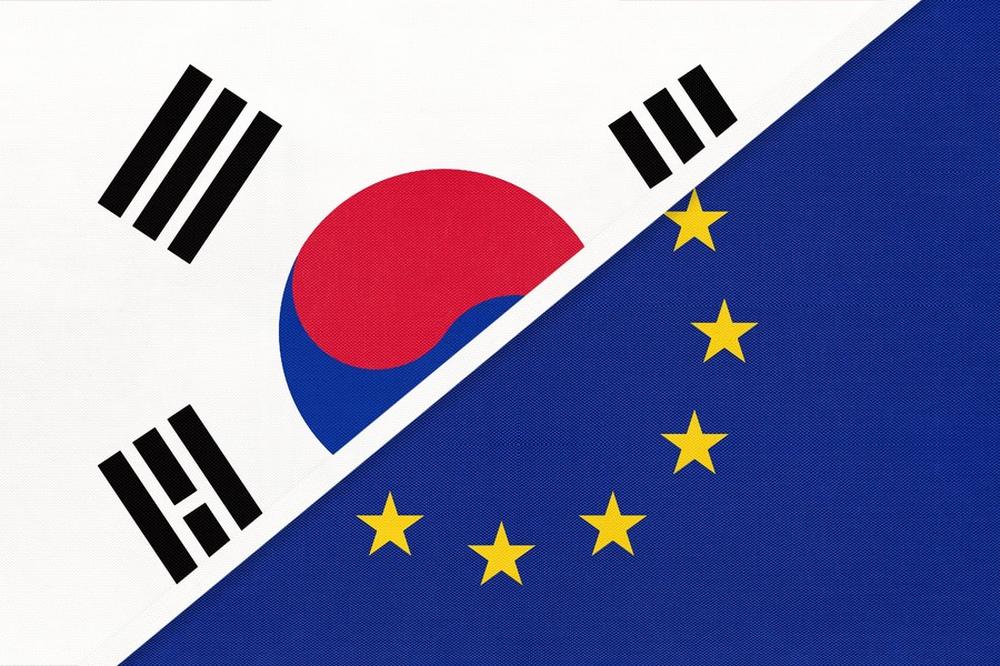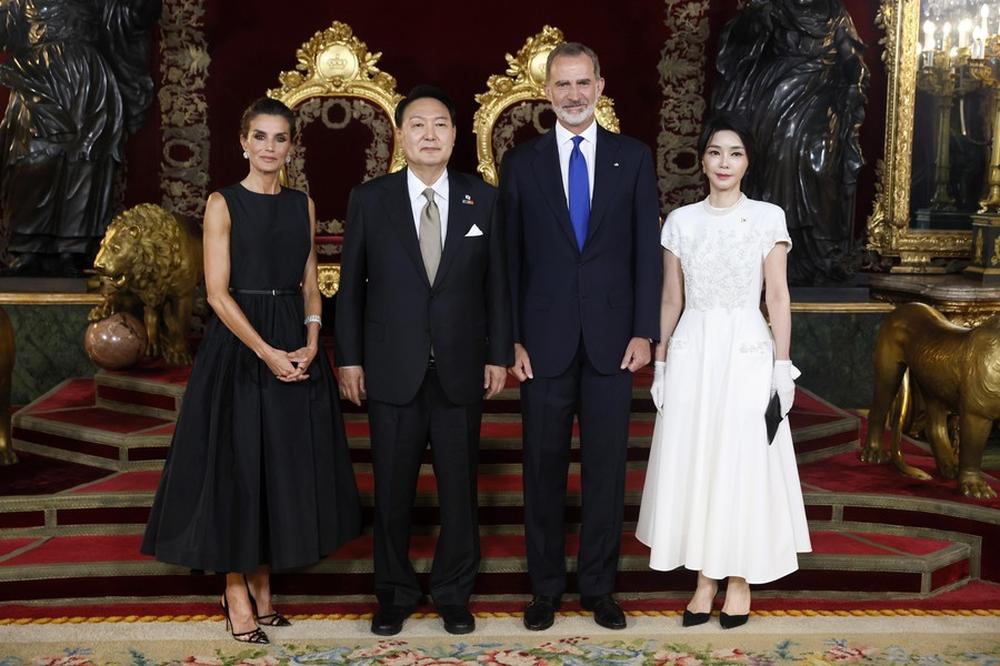- #Europe
- #Global Issues
- #South Korea
- #US Foreign Policy

► As the new government fleshes out its EU policy, attention should be paid on balancing out areas of cooperation.
► The Yoon government should develop a long-term Indo-Pacific framework and actively seek areas of cooperation with the EU’s strategy for cooperation in the Indo-Pacific.
► Based on strong bilateral relations, the two sides should broaden cooperation with other like-minded parties.
The timing is ripe for a boost in South Korea’s relations with the European Union (EU). The inauguration of President Yoon Suk Yeol of the conservative People Power Party (PPP) provides an opportunity for South Korea to look beyond the immediate Korean Peninsula and promote global roles and partnerships on the international stage, one of which should be to consolidate relations with the EU. Both South Korea and the EU face geopolitical challenges coming from assertive neighbours, namely, China and Russia. Such challenges to the liberal rules-based order that have benefited both South Korea and the EU provide a strong rationale behind increasing cooperation and coordinating policies to seek synergies in areas of mutual interest.
A comprehensive framework for South Korea-EU relations already exists. Three key agreements are in place: a Framework Agreement covering bilateral cooperation on “all issues of common interest” (in force since 2014), a Free Trade Agreement (in force since 2015), and a Crisis Management Participation Agreement (in force since 2016). This makes South Korea the only Asian country to have all three in force, on the basis of which has allowed deeper cooperation on specific issue areas such as cybersecurity and non-proliferation.
Close relations are also reflected in the frequent summit-level meetings; at the most recent meeting in October 2021, the two sides agreed to cooperate on supplying COVID-19 vaccines to developing countries and strengthening global vaccine supply chains. Indeed, even during the height of the pandemic, the two sides held a virtual summit in June 2020, where they marked 10 years of strategic partnership, shared experiences of handling the pandemic, confirmed support for multilateral institutions such as the World Health Organisation (WHO) and the World Trade Organisation (WTO), and committed to cooperation in fields such as climate change and the fourth industrial revolution.
However, it must also be noted that despite the comprehensive set of frameworks, there are areas of weakness in the current state of bilateral relations. Compared to the robust economic and commercial links between the two sides, cooperation on matters of security has been relatively lacking, with the exception of activities such as anti-piracy exercises. Another component that is lacking in bilateral relations is a shared strategic posture. Despite the similar positions held by the two sides concerning the US-China rivalry, there has been little concrete efforts for a coordinated response to such tensions.
While it is still early, there are indications of the new government’s interest in boosting South Korea-EU relations. The set of 110 national tasks published by the presidential transition committee includes plans to strengthen “value-based diplomacy” with Europe based on liberal democracy, market economy, the rule of law, and human rights. Such relations will focus on global issues, link Indo-Pacific policies, and strengthen practical cooperation in the field of economy, energy, among others. Indeed, as presidential candidate, Yoon’s foreign policy advisors noted that Yoon plans to focus on broadening the scope of South Korea-EU cooperation on advanced technologies and economy, strengthening cooperation in the Indo-Pacific region, and cooperating on the North Korea problem, both in terms of denuclearisation and the human rights situation.
As president-elect, Yoon also spoke with Ursula von der Leyen, European Commission President, and agreed to the idea of a bilateral summit later on in the year. What was notable was then president-elect Yoon’s comment that Russia’s invasion of Ukraine was an act of aggression that cannot be justified and the importance of a united response for peace in Ukraine. The above messages hints at greater emphasis on democratic values and a willingness to project a louder voice on such issues on the global stage.
As the new government fleshes out its EU policy, it should take into consideration the following. First, attention should be paid on balancing out areas of cooperation. This means devoting more resources to boosting cooperation on not just economic relations but also security issues. The biennial security dialogue between South Korea and the EU should be complemented by a parallel track to include discussions on the broader category of security, including non-traditional security issues. Annual cyber dialogues between the two sides that have been held since 2014 is a good template for other issue areas. These include cooperation on matters of public health, preventive diplomacy and crisis management.
Second, the Yoon government should develop a long-term Indo-Pacific framework and actively seek areas of cooperation with the EU’s strategy for cooperation in the Indo-Pacific. Among the seven priority areas under the EU’s Indo-Pacific strategy, issues such as sustainable and inclusive prosperity, green transition, and digital governance are areas that South Korea has both expertise and interest and would be mutually beneficial for bilateral cooperation. Furthermore, although the New Southern Policy (NSP) under former president Moon Jae-in’s term was not an Indo-Pacific strategy per se, it has many components that should be further developed in Yoon’s term. For example, South Korea’s experience of supporting infrastructure development in ASEAN member states, especially as it relates to the building of smart cities can be linked to the EU’s Global Gateway, a strategy to support infrastructure development around the world.
Third, based on strong bilateral relations, the two sides should broaden cooperation with other like-minded parties. This can take the form of actively supporting minilaterals and newly emerging groupings such as the Indo-Pacific Economic Framework (IPEF) led by the US or taking part in Quad Plus activities. Also, the two sides can demonstrate greater solidarity in voicing concerns on issues such as Russia’s invasion of Ukraine, China’s treatment of ethnic minorities, or North Korea’s human rights violations. Here, the primary concern is how the two sides can position themselves in midst of the US-China rivalry. Both the EU and South Korea maintain nuanced positions where they do not want to antagonise China but do not benefit from tolerating illiberal practices. It should be clear that the purpose of broadening cooperation with like-minded parties would not be to isolate or contain China, but to reinforce aspects of the rules-based international order that have come under threat.
Some may question the importance of consolidating relations with the EU at this time, especially when South Korea is faced with more immediate regional challenges such as threats coming from North Korea or China. However, events occurring in Europe have implications for the East Asian region and threats that have emerged through the advancement of technology such as nuclear or cyber mean geography is no longer a barrier or protection against such threats.
This is precisely why South Korea needs to promote stronger global partnerships. Through consolidating relations with like-minded partners such as the EU, South Korea can be an active player in the reshaping of international order as well as norms in specific areas such as supply chains, infrastructure investment, maritime security, and cyberspace. Rather than being consumed with episodic reactions to North Korea’s missile threats or Chinese economic coercion, South Korea needs to show deeper commitment to upholding the liberal rules-based order with friends and allies. Over time, this will benefit South Korea in the form of a more favourable international environment that allows a principled and calibrated response to such threats, as well as greater international support for South Korea’s policies in matters concerning North Korea and the region.
Saeme Kim is a KF Indo-Pacific Programme Visiting Fellow at RUSI. Her research interests include the international relations of East Asia, particularly concerning regionalism, North Korea and middle power diplomacy. Prior to joining RUSI, Saeme was a resident fellow at Pacific Forum International and a researcher at the Korea Institute for National Unification (KINU) in South Korea. She received her PhD from King’s College London.
